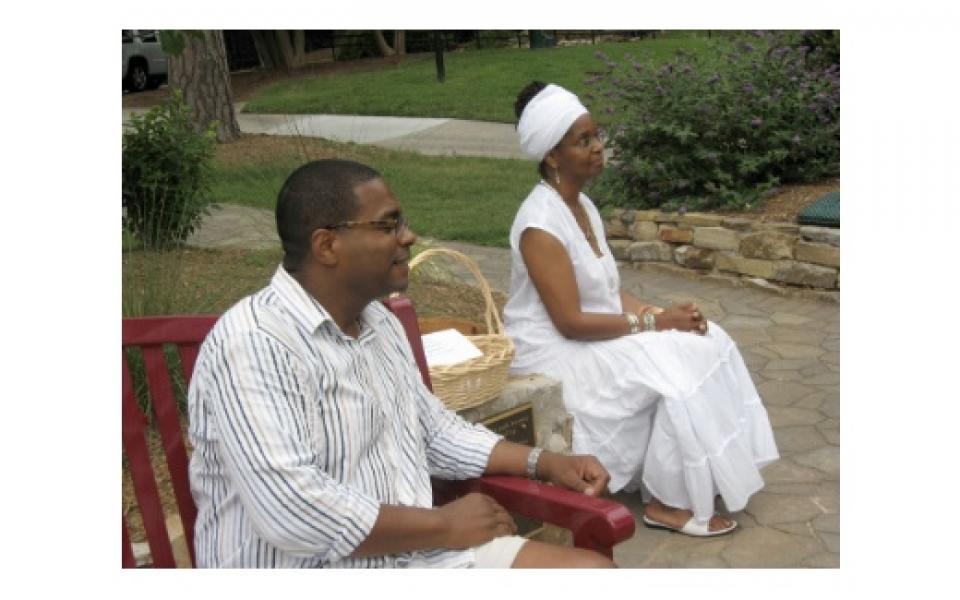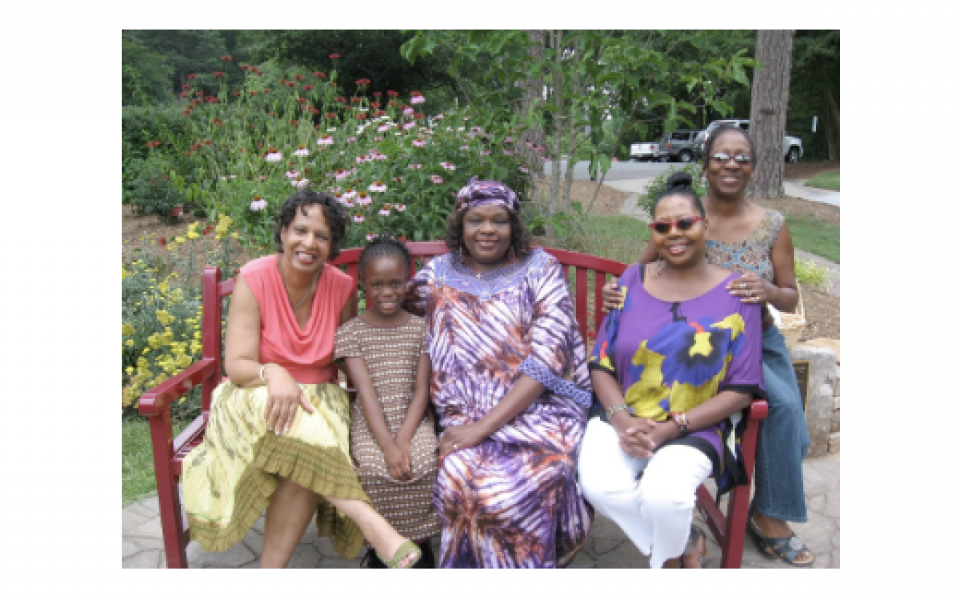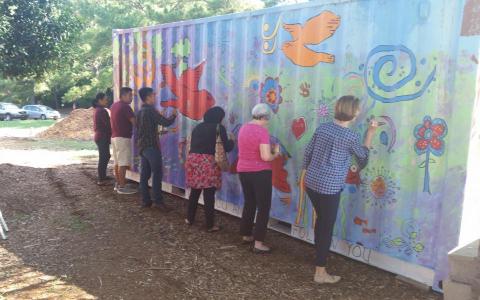Adeola Fearon is the only child in her Afro-Caribbean family born in the U.S., in New York specifically. She now serves her community as a teacher, author, and healer.

This is part two of our three-part mini-series highlighting the work of influential women of African descent in the United Religions Initiative North America network. You can find part one here and part three here.
By Joshua Broadwell
Adeola Fearon lives in Charlotte, N.C. and is involved in the Charlotte Red Bench Garden, a URI North America Cooperation Circle. But she grew up in New York City during the Civil Rights Movement, and being a young person during this period shaped Fearon’s outlook permanently.
Witnessing both the oppression of African American and Afro-Caribbean people and their determination to stand up for their rights instilled in Fearon her own determination to “never back down.” The assassinations of Martin Luther King Jr, John Kennedy, and Robert Kennedy — all of which she lived through — showed Fearon how important and potentially dangerous it was for people to fight for equality of any kind.
Like Partlow-Myrick, Fearon recognized something different about herself at a young age. She was able to pinpoint it: curiosity about other people and specifically, other religions. She says, “I was a strange child! Where everyone else would rush in at the library, get what they wanted, and leave as soon as they could, I stayed behind and read. I was always interested in learning more about religions and symbols and read whatever I could.”
She became involved in many different faiths, from Ba’hai to Buddhism and Catholicism, before finding her spiritual home in Yoruba Spirituality. But her experiences with each faith, along with her research, taught her that what really matters is what’s at the core. “Everything else is just the trappings,” she believes.
In college, Fearon pursued a degree in interpersonal communication, a new program at the time. She works in a variety of capacities now, including as an author, teaching artist, and healer, but effective communication and the meaning behind the words we use are at the center of everything she does.

A definite strength of a project like this is how it can appeal to people of any generation and draws them closer together.
The aforementioned Charlotte Red Bench project is one of the primary endeavors Fearon is involved in. It provides a peaceful, green haven in the middle of Charlotte for people to reflect and meditate, and then take their experiences and peace to share with the rest of the world in whatever way they see fit. This grew out of another initiative, a 3-year effort to promote love, compassion, and forgiveness through holding community discussions.
These discussions revealed a definite need in the city, and Fearon described how influential their emotional impact was: “Some of the stories we heard…you’d have to be colder than an iceberg not to be moved by them.”
Conversation and discussion define the essence of Fearon’s work and focus. She always looks for opportunities to pass on an inspiring or healing word, whether it’s singing a song of love at a birthday party or talking with someone about their deepest pain.
She’s experienced some difficult conversations as well, speaking with people who disapprove of her just for her faith and race. But she tries to learn why they think what they do and sees these negative reactions as chances for other people to grow.
Fearon says her goal in speaking with others is to draw out the possibilities inside of them instead of trying to force her own views of how they should be on them. That’s why she developed a motto she uses when teaching others: “Love is seamless, but forgiveness must look for the seam and repair it.”

